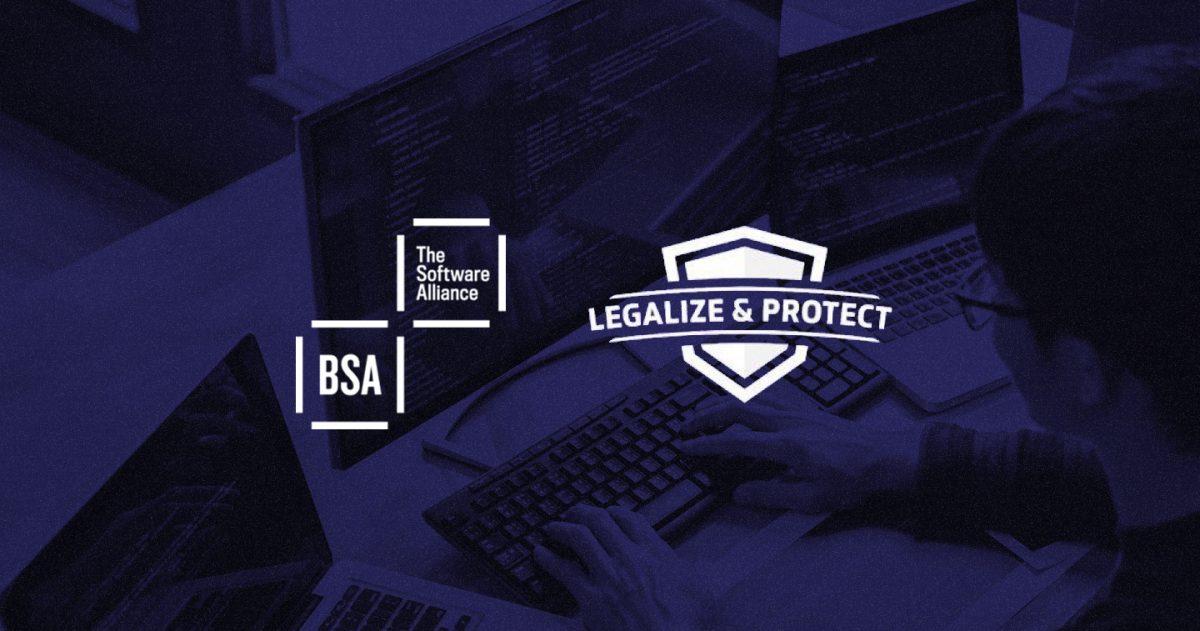MANILA, PHILIPPINES – With billions of dollars budgeted for national infrastructure projects in Southeast Asia, BSA | The Software Alliance today launches a campaign calling on engineering and design firms to commit to using only licensed software in the development of roads, bridges, ports, and communications infrastructure planned for the years ahead as governments seek strategies to boost national competitiveness.
The campaign is a continuation of BSA’s successful regional Legalize and Protect initiative launched since 2019. The campaign has helped businesses across Southeast Asia to install licensed, cyber secure software on nearly 1 million PCs.
“It would be a tremendous sign of strength to have the next generation of infrastructure projects in Southeast Asia built with software that is fully enabled, highly productive, secure, and licensed,” said Mr. Tarun Sawney, Senior Director, BSA. “BSA wants to help the ASEAN region’s leading design and engineering firms to make the transition away from the risks of unlicensed software to fully licensed software that can actually unlock potential of the region’s leading designers.”
Working with software company Autodesk, Inc., BSA plans to conduct outreach to 20,000 engineering and design firms across the region. This includes 5,000 private sector engineering and design firms in the Philippines, 5,000 firms in Indonesia, 5,000 firms in Malaysia, and 5,000 firms in Thailand. While the firms are primarily engineering and design firms, there are also other companies on the list, including manufacturing companies and animation studios.
The BSA outreach will include free consultations and advisory services on conducting audits for private sector enterprises that seek counsel on the software licensing process. The outreach will take place from July 21, 2021 in the form of direct communications from BSA to the 20,000 firms. For companies that would like to learn more about software licensing, BSA encourages executives to conduct internal audits to identify potential licensed gaps inside their companies.
BSA is also planning to collaborate with government agencies across the region to support the campaign and further encourage the private sector to exclusively use licensed software. This includes the Optical Media Board (OMB) in the Philippines; the Ministry of Communication and Informatics in Indonesia; the Ministry of Domestic Trade and Consumer Affairs in Malaysia, and the Royal Thai Police, Economic Crime Suppression Division (ECD) in Thailand.
“Licensed software is our first line of defense against cyberattacks, and we need the private sector to prioritize use of licensed software and be proactive in ensuring that the habit of using unlicensed software is stopped,” said Atty. Cyrus Paul S. Valenzuela, Chief, Legal Division of the Optical Media Board. “The country’s unlicensed software use is an indicator of how exposed we are to cyberattacks, data theft, ransomware, and network attacks. This remains a concern in the Philippines, and it has to be fixed. BSA’s effort to help companies on their journey to following national laws is crucial and we strongly support BSA to make our national cyberspace more secure.”
BSA estimates that there are still more than 100,000 design and engineering companies using unlicensed software in Southeast Asia.
Nearly every week in Southeast Asia, a private sector engineering, architecture, or design firm is fined and penalized for using unlicensed software. As such, the BSA campaign is designed to inform business leaders about the risks of unlicensed software and the benefits of using legal design software.
“It’s clear that Southeast Asia’s leading engineers and designers want to use fully licensed design software because it makes them more productive and keeps their PCs secure from attack,” said Mr. Sawney. “The challenge is that not enough business leaders at these firms are willing to make the necessary investment.”







